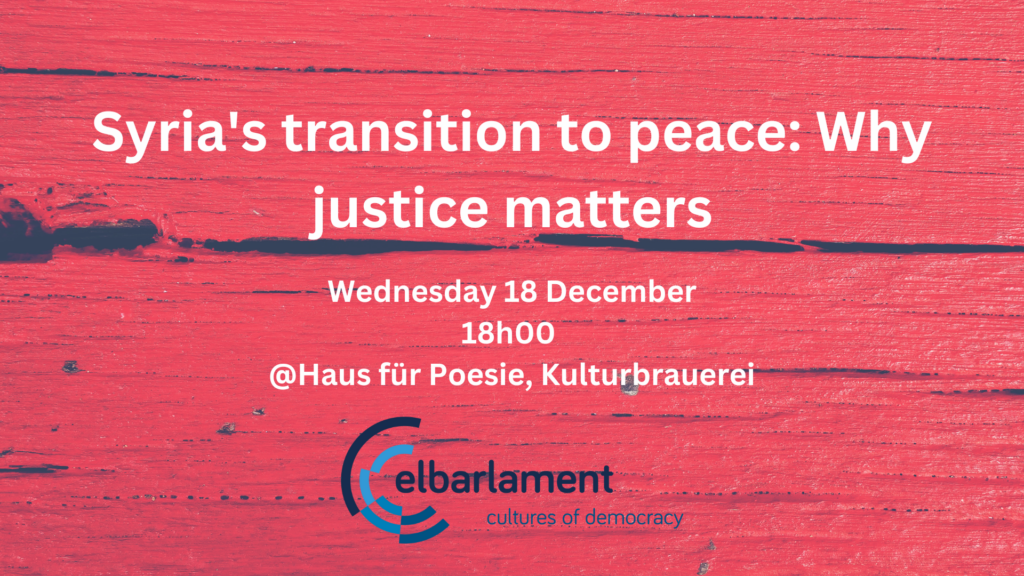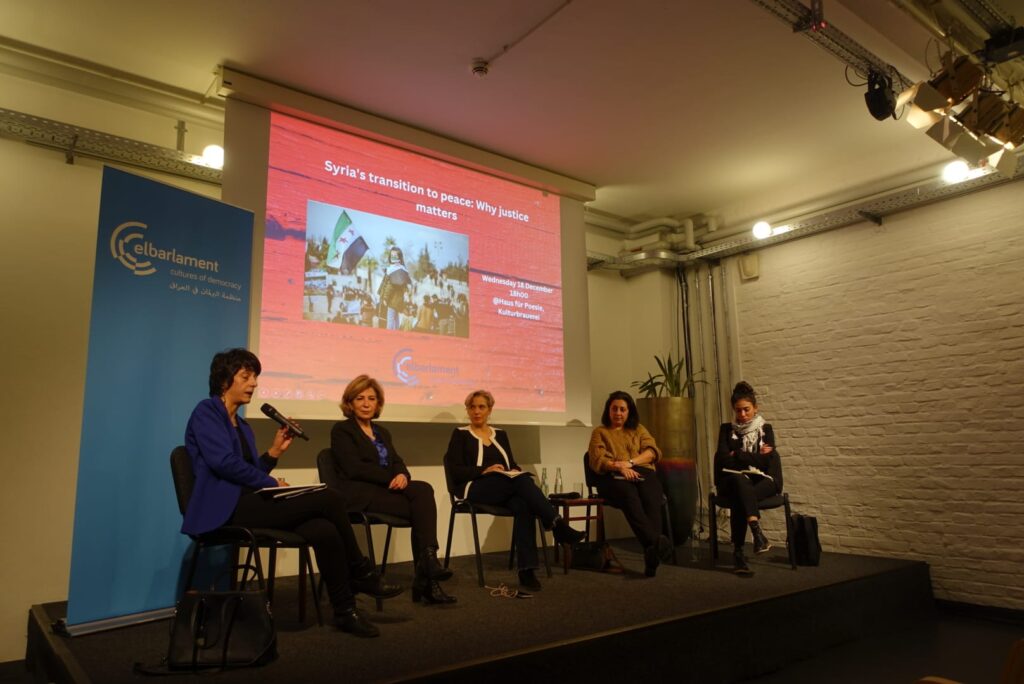Syria’s transition to peace: Why justice matters

We organised an event on 18 December in Berlin, to talk about Syria’s transition to peace. We had the pleasure of having Dr Bente Scheller, Head of the Middle East and North Africa Division at Heinrich Böll Stiftung, Joumana Seif, European Center for Constitutional and Human Rights, Mariana Karkoutly, Huquqyat, Organisation of Syrian women lawyers and legal practitioners, Mariah Al Abdeh, Chief Executive Officer at Women Now For Development and Jelnar Ahmad, Syrian Archive, Program Manager at Mnemonic.
December 8th turned the tide for many people in Syria and the diaspora. What started as peaceful protests for dignity in 2011 had been met with a violent response from the Assad regime back then. The brutality of the campaign displaced more than half of Syria’s population. Thousands were demonstrably tortured to death in regime prisons, and more than 100.000 were subject to forced disappearance. Armed factions of different sides in Syria committed human rights violations, and the IS carried out genocide against the Yezidis in Syria and Iraq. With many foreign powers involved, the conflict developed features of a proxy war as well. With the successful offensive of Islamist factions, in coordination with Kurdish, Druze and others, Syrians finally managed to topple the Assad regime.
The 54 years of authoritarian rule and the woes of the war left layers upon layers of injustice. The most heinous crimes remained unpunished.
Other conflicts – but also the massacres committed in Syria under Hafez al-Assad in the 1980s – show us that justice efforts are core to peace. They help victims and survivors to cope with their ordeal, they give credit to the disappeared, and they help end impunity. If justice is not tangible, revenge might endanger the path to a different future.
In this situation of transition, the event addressed the following questions:
How to address and correct injustice?
Who are the Syrian actors who have been relentlessly working on justice for the past decades?
What do they identify as priorities now? What do they need?
And what role can Germany and the EU play in supporting them?
